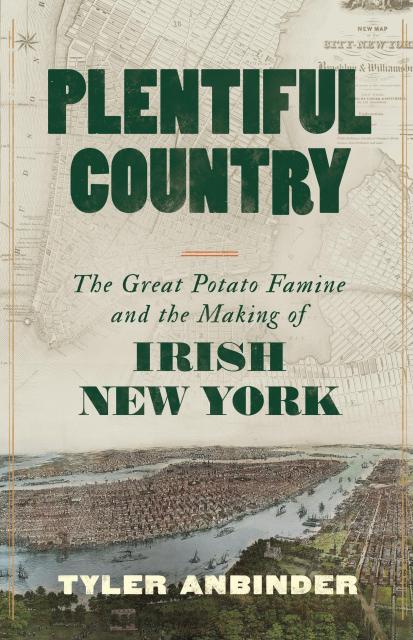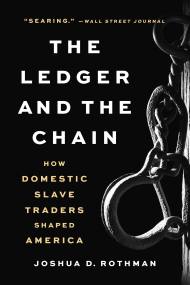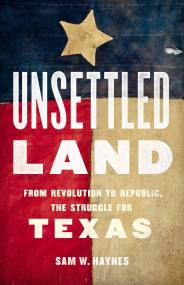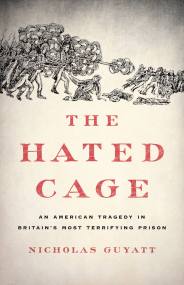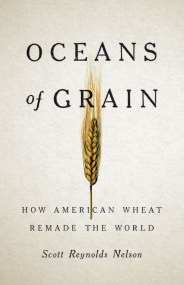By clicking “Accept,” you agree to the use of cookies and similar technologies on your device as set forth in our Cookie Policy and our Privacy Policy. Please note that certain cookies are essential for this website to function properly and do not require user consent to be deployed.
Plentiful Country
The Great Potato Famine and the Making of Irish New York
Contributors
Formats and Prices
- On Sale
- Mar 12, 2024
- Page Count
- 512 pages
- Publisher
- Little, Brown and Company
- ISBN-13
- 9780316564823
Price
$15.99Price
$20.99 CADFormat
Format:
- ebook $15.99 $20.99 CAD
- Hardcover $32.50 $41.50 CAD
- Audiobook Download (Unabridged) $27.99
Buy from Other Retailers:
In 1845, a fungus began to destroy Ireland’s potato crop, triggering a famine that would kill one million Irish men, women, and children—and drive over one million more to flee for America. Ten years later, the United States had been transformed by this stupendous migration, nowhere more than New York: by 1855, roughly a third of all adults living in Manhattan were immigrants who had escaped the hunger in Ireland. These so-called “Famine Irish” were the forebears of four U.S. presidents (including Joe Biden) yet when they arrived in America they were consigned to the lowest-paying jobs and subjected to discrimination and ridicule by their new countrymen. Even today, the popular perception of these immigrants is one of destitution and despair. But when we let the Famine Irish narrate their own stories, they paint a far different picture.
In this magisterial work of storytelling and scholarship, acclaimed historian Tyler Anbinder presents for the first time the Famine generation’s individual and collective tales of struggle, perseverance, and triumph. Drawing on newly available records and a ten-year research initiative, Anbinder reclaims the narratives of the refugees who settled in New York City and helped reshape the entire nation. Plentiful Country is a tour de force—a book that rescues the Famine immigrants from the margins of history and restores them to their rightful place at the center of the American story.
-
“[A] brilliant book… Drawing on new archival sources, Anbinder gives voice to a generation’s struggle to escape from destitution and despair and its remarkable success in achieving dignity and stability."Fintan O'Toole, The Irish Times
-
“Surprising and contrarian… A miracle of historical precision.”National Review
-
“Impressive… substantive… illuminating… Anbinder offers a vivid array of immigrant portraits, mostly (though not entirely) set in New York. More broadly, he issues a challenge to historians who ‘suggest that the Irish had hardly any control over their destinies.’”Commonweal
-
“Groundbreaking and revelatory . . . this is revisionist history in the best sense of the word.”Irish Business Post
-
“A superb revisionist history of the Famine generation… Anbinder...provide[s] a series of riveting and deeply personal stories of men and women who moved up the socioeconomic ladder through hard work, entrepreneurial vision and a wee bit of luck.”The Wall Street Journal
-
“Anbinder details the human horrors of the potato famine in unadorned prose that only adds to its emotional impact… [and] weaves together individual immigrants’ stories with more general history to make this a remarkably perceptive and engaging portrait of American immigration history.”Booklist
-
“[An] eye-opening account… Readers will be engrossed.”Publishers Weekly
-
"With meticulous genealogical research, Anbinder fleshes out the lives of labourers and domestics, peddlers, barmen and saloon-keepers, making for an absorbing read."Irish Independent
-
"Research that should reshape history on both sides of the Atlantic...it is hard to overestimate the importance and achievement of Anbinder's work."Irish Times
-
"Plentiful Country is a masterpiece of research and writing. Tyler Anbinder has outdone himself by weaving the lives of individual immigrants into a sweeping history of the Irish in New York. From their struggles in Ireland before the famine to the crammed-full ships that carried them over, from their lives as servants, laborers, and artisans to their fanatical savings, ingenious enterprises, and movements across the United States, this book vividly captures the rich history of a complex people."T.J. Stiles, winner of the Pulitzer Prize for The First Tycoon and Custer's Trials
-
“On a recent visit to Ireland, I saw one of the docks where, it was said, desperate, starving women once held up their children, beseeching strangers to take them to a new life in America. In Tyler Anbinder’s moving, expertly told narrative, I learned what happened to that generation of immigrants and their descendants. This is a hugely important and too little-known part of the American story.”Adam Hochschild, New York Times bestselling author of Spain in Our Hearts and American Midnight
-
“Plentiful Country celebrates the survivors of Ireland's Great Famine, who are so often cast as dazed immigrants unprepared and unsuited for life in New York and America. Drawing on a decade of research, Tyler Anbinder presents them instead as women and men with agency: adept learners who, by both seizing and creating opportunities for themselves, remade their new country. They speak for themselves in this book, in word and deed.”Hasia Diner, New York University, and author of Erin’s Daughters in America
-
"Groundbreaking. The survivors of the Great Hunger portrayed as never before. Plentiful Country will transform your understanding of the generation who survived. They emerge from the shadows in a story of determination and hope that forged New York as we know it."Fin Dwyer, author of A Lethal Legacy
Newsletter Signup
By clicking 'Sign Up,' I acknowledge that I have read and agree to Hachette Book Group's Privacy Policy and Terms of Use
